#world building •
Text
Audrey doesn’t have children and she’s not interested in being a mom, but somehow she’s ended up with a bunch of teens in her apartment calling her ‘Mrs. Rose’ and asking her (or her husband) to take them to the mall on weekends. And, apparently, a bunch of seventeen year olds building a blanket fort in her living room for a movie night is more appealing than the school dorms, while an army arrives at the exact same time every Saturday night to take over her kitchen for pizza, throwing cash in a pile to help cover the cost.
“They’re Hadie’s friends, Chad. The Royal Palace is right there,” she complains, scrolling through a sales page dedicated to 12 person mini-busses. “Mal is Queen or whatever. Why am I the one doing this?”
“They want to get away from Royal life, not closer to it, love,” Chad tells her, leaning over her shoulder and pointing at a bus. “What about that one?”
“Not a good safety rating. Is a twelve seater enough?”
“I think so?” Chad counts on his fingers. “Chloe sees us more than she sees her parents, right?”
“Right. It’s all of Hadie’s VK friends: Him, Dina, Jace, Harry and Eddie. Then there’s Chloe and Ariana. That’s what…nine of us?”
“One more; Lexi usually comes with Chloe.”
“Ah, right, can’t forget Anxelin. Ten. Ten of us.” Audrey lands on a good choice and buys without a second thought. She sits back, turning to her husband wearily. He frowns back at her.
“What’s wrong?”
“Do you think we need a bigger house?”
He shrugs. “Maybe. A bigger garden would be nice.”
“A dedicated office?”
“A garage.”
“Extra guest rooms.”
“A pool.”
“A pool?” Audrey screws up her face. “Really, Chad?”
“Summertime gets hot you know, and the Enchanted Lake is always busy. And with eight teenagers?”
“Touché,” Audrey agrees, flipping open a tab to new real-estate. “Pool it is.”
#disney descendants#found family#audrey descendants#chad charming#chloe charming#princess ariana rose#hadie descendants#text post#world building#thinking thoughts
45 notes
·
View notes
Text
OK SO HEAR ME OUT
A villain who hates life, hates the very concept of life, he is a puppet. A puppet who can mimic anyone's movement, whoever he pleases.
He mimicks the hero, everything from his punches and kicks to the way he breathes. Even their heartbeats are in sync.
The villain is a 7ft tall puppet with no strings attached, it mostly dangles with large sharp hands and small skinny sticks for feet (it makes more sense in my head), it's hair is long and covers its face which is also very demonic and disoriented.
It's what they call a monster, a creation that should have been destroyed.
It can also mimic the appearance and personality of others, but I can only mimic one, a appearance or their actions.
Yet ofcourse no character can ever be created without a flaw!
The Puppet can only mimic one being at a time, it can easily switch from one to the other.
As I said earlier The Puppet can mimic everything, all the way to how one breathes, so what if the hero holds their breath?
Well they can' refuse oxegyn forever, and as soon as they draw a breath, so does the puppet.
I also said that the puppet can't mimic 2 people at once but can easily switch, so what if there were 2 Heros?
Well as soon as one runs out of breath, the other would have to jump in just in time after inhaling deeply to hold their breath longer.
This leaves The Puppet with two choices,
die a noble death due to suffocation
OR
surrender.
What villain would wish to surrender after all the damage they've done?
The Puppet dies, their last memories being of humans and how they've existed around them.
Had he enjoyed the meaningless lives of humans?
It amused him.
@paranoia-art
#my writing#writing#creative writing#my ocs#my characters#villains lover#villianous#villain and hero#tw death#writers of tumblr#writers of after dark#writers block#writers on tumblr#writeblr#writers and poets#writing community#writing tips#character development#descriptive phrases#character writing#character description#plot development#character building#world building#writing inspiration#character arcs#villain arc#hot villain#character design#my art <3
30 notes
·
View notes
Text
Incorporating weather elements into your narrative
*Picture me in shock over 11 new followers in 6 days after a 3 week dry spell: Thanks everybody!
Short this time! Weather and climate as worldbuilding are kind of like adverbs. Adverbs, as a concept, are not book kryptonite (despite what all the people screaming about how using better verbs is always the answer want you to believe). Adverbs should just be used with intent and not be redundant, which I’ve said before.
Basically, why use an adverb that doesn’t actually tell us any helpful information about the verb that the reader can’t already presume? “She smiled happily,” well, yeah, as you do. “She smiled sorrowfully,” okay, now that’s an expression I can work with. Why is she smiling sorrowfully? Why does she think she must smile through her sadness? Clearly it’s failing, otherwise the narrator wouldn’t note that the smile is sorrowful at all.
There’s a reason “talking about the weather” is the butt of the joke. It’s generally seen as boring and inconsequential to either party and used to just fill otherwise awkward silence. A quick sentence for sensory details is great. Repeat details that don’t dig into those sensory elements are not.
Your weather is no different. Why are you describing it if it serves no purpose to the scene? Everyone’s default unobtrusive day is different, but unless stated otherwise, people are going to assume it’s either day or night with mildly clear skies and tolerable heat and humidity. Talking at length about average weather that doesn’t impact your character’s emotions or choices, or the tone of the narrative, is a waste of effort in my opinion.
As in, describing the perfect day while a charcater is stuck in an office and unable to enjoy it? Yes. A character getting groceries and it's 72 and sunny and look at all the boring shapes of the clouds and planes flying over head while I get zero input on how the character feels about any of it or why this detail matters? Fluff and filler.
If your book is chock full of poetic fluff, go ham, everybody's ideal narrative is different. I like mine lean, otherwise I get bored by all the fluff while I wait for the book to remember it has a plot.
Weather fits into one of those little buzzword bingo cards where, if the author is taking an aside to describe it, you know it’s going to be important later (or at least it should be important later if the author didn’t just forget about it). Weather tends to be used as foreshadowing and is used as metaphorical shorthand everywhere.
If I write about a character going off on a quest and I tell the reader that clouds are growing in the distance, there’s a 70/30 chance I’m not just talking about actual clouds, but the threat of the enemy, some sinister plot our plucky heroes are ignorant of. Stuff like:
A red sunrise
Black/grey stormclouds
The ambiguous “rain/storm” that’s coming
A chilly wind picks up
An oppressive heat wave settles over the land
Fictional weather is so entrenched in metaphor and allegory that no matter how cliché it gets, watching or reading a funeral scene where it’s not grey and rainy feels insincere and not somber enough for the tragedy unfolding. You can avoid this by having your characters hate that it’s not raining for their funeral, as if even God doesn’t mourn their dead friend and the rest of the world moves on uncaring.
Same vibe as Halloween decorations in broad daylight. Or Christmas decorations in the Florida 80 degree December. Fall without the changing colors of the leaves. The mood is completely wrong.
“It was a dark and stormy night” sets the reader up for something serious, perhaps mysterious and dramatic, not a cheesy Hallmark romance. Weather as tone is extremely helpful. Not describing it is better than picking the wrong weather for your scene, unless you're trying to be ironic. Weather is practically its own character, depending on how much it matters to your story.
Fantasy and abnormal weather should be treated like any other scene descriptor element. It’s not enough to just drop in a detail about how there’s a 20% chance of blood rain at noon. If this is meant to be metaphorical or foreshadowing, despite being “blood rain” maybe it’s not an ill omen. Maybe it’s a magical fertilizer and a farming boon that graces the land, you gotta clarify.
Personally I’d fixate on the blood rain and want to know much more about it, just as much as I’d want to know about the rest of the town. I don’t need you to explain why it exists, it can exist just for funsies without serving any plot purposes, but I definitely want some more detail about the blood rain, it sounds cool.
—
TLDR; Weather cannot be untethered from its metaphorical and tonal implications, it’s just too entrenched in fictional associations. With that said, if weather in your book isn’t important at all to the story, randomly describing the sunny day at length is like describing the grass of a random lawn—we all know what random grass looks like. Unless the state of the lawn matters, it’s fluff. If it doesn’t service the character’s arc, the themes of the story, the tone of the scene, or the plot in any way, it can be skipped beyond relaying to your readers on the time of day and some sensory details like if it’s hot or windy or humid.
#writing advice#writing resources#writing a book#writing tips#writing tools#writing#writeblr#world building#descriptive writing
24 notes
·
View notes
Text
Miraculous Make No Sense
so I changed how they work.
I love me a well-thought-out and deliberate magic system. I love seeing the different rules and properties of how magic works and I love seeing how the author expands and works around those rules. Limitations are placed, followed, and then explored.
Miraculous Ladybug doesn't do this.
The powers are unbalanced and unrestrained. Miraculous can do whatever the writers want them to whenever they need it to happen. There are no limitations to the powers and the powers don't balance one another out.
This was the first issue I tackled in my rewrite.
Miraculous Overview
I decided that there are two "categories" for miraculous. They are either first or second-ring miraculous. (This is taking inspiration from the miracle box featured in the show and how the miraculous are organized into different rings).
What ring a miraculous belongs to determines how "powerful" it is. All miraculous, regardless of what ring or miracle box they belong to, have the following features:
It is a piece of jewelry
It is connected to and contain imagery of an animal
When a miraculous is worn by a person, the person will be granted, regardless of what ring or miracle box the miraculous belongs to, the following items:
They will now be able to see all Kwamis (regardless of miracle box or ring affiliation)
A unique phrase that will allow them to transform between civilian attire and hero attire
If a person is transformed, they will:
Get a magic girl costume and a magical girl transformation! The costume combines elements of the wearer's personal tastes and the animal associated with the miraculous
Have general enhancements (i.e. they are faster, stronger, have quicker reflexes, etc. but mental capabilities remain unchanged; if they’re dumb as fuck they stay dumb as fuck)
Have a magic weapon/object unique to the miraculous that serves at the housing unit of their special ability
One power unique to their miraculous
All miraculous have the attributes featured above, however, a first-ring miraculous grants the wearer 2 additional special abilities that a second-ring miraculous doesn't.
Special Abilities
In the rewrite, the special ability unique to the miraculous is how I am classifying the powers of each character. Cataclysm, Lucky Charm, Mirage, Venom, etc. are all the special abilities of each miraculous.
Second-ring miraculous have temporary special abilities. If the fox miraculous wearer casts Mirage and then detransforms, Mirage deactivates the illusion dissipates. However, first-ring special abilities are permanent (with one exception, more on that later). So when a ladybug wearer uses Restoration ("Restoration" being the new name for the "Miraculous Ladybug" power seen in the show) and then detransforms, all the damage they just repaired stays repaired.
Powers are also draining to the wearer. The bigger or more precise the use of the power is, the more physically draining it is. It takes a lot of strength, both physically and mentally, as well as a deep connection with the miraculous/kwami to use it for a wider range of uses. It is pretty easy for a black cat wearer to activate cataclysm and let it do whatever it wants, but it is more difficult to control that damage to a certain area or to destroy tougher materials. This adds more restrictions to the powers and gives the characters something to work on.
First-Ring vs. Second-Ring
For second-ring miraculous, there is only one special ability, hence why the fox miraculous only has mirage, but first-ring miraculous have multiple (why the ladybug miraculous has lucky charm and miraculous ladybug and de-evilize/deakumatization and-). This is because first-ring miraculous are more powerful.
I think of each miraculous wearer as having spell slots. For second-ring wearers, they only have 1 spell slot and 1 spell in that slot they can use. For first-ring wearers, they have 3 spell slots with 2 spells that are permanently stuck there.
To use an example from the show:
Any wearer of the ladybug miraculous, regardless of any differentiating factors, will always be able to use "Lucky Charm" and "Restoration".
However, that third spell slot can be switched out to fit the situation. This third slot is there to be able to counteract and balance out other miraculous. So if a wearer of the ladybug miraculous thinks the wearer of the butterfly miraculous is using akumatization for nefarious reasons, that third "slot" would acquire a "spell" that directly combats akumatization, which is where the de-evilize ability in the show comes in.
This third ability only exists to combat other miraculous. If, for instance, a ladybug wearer is fighting in a war, the third ability won't make them bullet proof or something because guns are not a product or feature of a miraculous. The third ability only develops to counteract other miraculous.
In addition to that, this third ability only develops as a result of intense emotion. If a ladybug wearer just dislikes another wearer, the third ability isn't going to manifest, but if the ladybug wearer truly believes with every fiber of their being that another miraculous is being used for evil, then the ability will form.
So in the show, Marinette doesn't gain the ability to de-evilize right away. Only when she gets deeply and emotionally invested in the battle does that third ability form.
The final bit about the third power is that you can only use one third power at at a time. Going back to the spell slot analogy, you can have multiple spells you know how to use, but because there is only one slot available, you can only "equip" one spell at a time. When a spell is replaced with another, its effects disappear. Since two of the spell slots are permanently taken up, there is only one "customizable" spell slot.
Final Notes
Miraculous are all about balance. All miracle boxes have 2 rings, and the first ring only ever have 2 miraculous. These miraculous are always opposites and balance each other.
Which is why it makes no sense that Ladybug has so many fancy ass powers and Chat Noir only has cataclysm. Like what??????? So I ended up severely limiting Ladybug's powers and adding more restrictions and clarification. I also wrote in a new power for Chat Noir but this is already long enough so I'll save those details for a different post. :)
#reblog if you like it boosts my serotonin levels#i am so mentally ill#im rewriting a childrens tv show ofc im mentally ill#im an adult oh god#Miraculous Ladybug#Miraculous Ladybug AU#Miraculous Ladybug Rewrite#Miraculous Ladybug Fanfiction#ML#ML Fanfiction#ML Rewrite#ML AU#Writing#Fanfiction#MLB#MLB Fanfiction#MLB Rewrite#MLB AU#MLB:AR WorldBuilding#Miraculous#miraculous lb#part 1#magic system#world building#im going crazy i've barely scratched the surface#MLB:AR
24 notes
·
View notes
Text
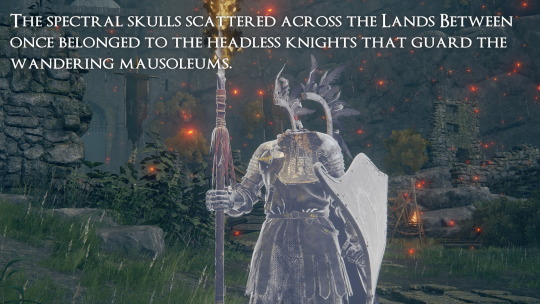
The spectral skulls scattered across the Lands Between once belonged to the headless knights that guard the wandering mausoleums.
16 notes
·
View notes
Text
a list of 100+ buildings to put in your fantasy town
academy
adventurer's guild
alchemist
apiary
apothecary
aquarium
armory
art gallery
bakery
bank
barber
barracks
bathhouse
blacksmith
boathouse
book store
bookbinder
botanical garden
brothel
butcher
carpenter
cartographer
casino
castle
cobbler
coffee shop
council chamber
court house
crypt for the noble family
dentist
distillery
docks
dovecot
dyer
embassy
farmer's market
fighting pit
fishmonger
fortune teller
gallows
gatehouse
general store
graveyard
greenhouses
guard post
guildhall
gymnasium
haberdashery
haunted house
hedge maze
herbalist
hospice
hospital
house for sale
inn
jail
jeweller
kindergarten
leatherworker
library
locksmith
mail courier
manor house
market
mayor's house
monastery
morgue
museum
music shop
observatory
orchard
orphanage
outhouse
paper maker
pawnshop
pet shop
potion shop
potter
printmaker
quest board
residence
restricted zone
sawmill
school
scribe
sewer entrance
sheriff's office
shrine
silversmith
spa
speakeasy
spice merchant
sports stadium
stables
street market
tailor
tannery
tavern
tax collector
tea house
temple
textile shop
theatre
thieves guild
thrift store
tinker's workshop
town crier post
town square
townhall
toy store
trinket shop
warehouse
watchtower
water mill
weaver
well
windmill
wishing well
wizard tower
#worldbuilding#setting prompts#writer resources#writing inspiration#writing prompts#scene settings#writing reference#writing ideas#prompt list#creative writing#writing community#writer prompts#writing tips#world#fantasy world#fantasy worldbuilding#high fantasy#world building#epic fantasy#writing fantasy
29K notes
·
View notes
Text
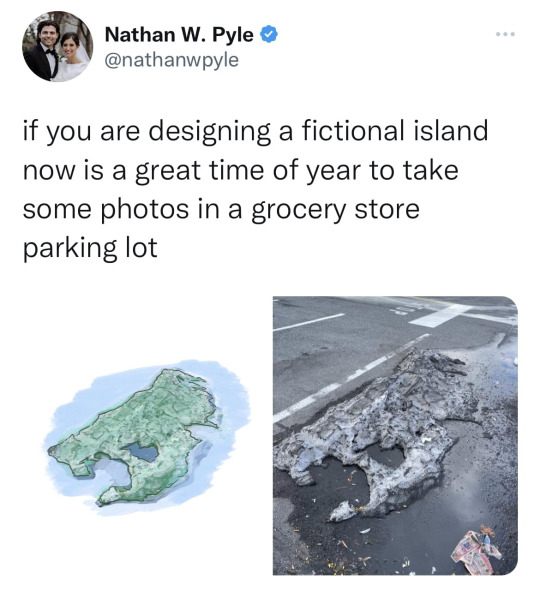
This came across my Facebook feed, felt I’d share it.
48K notes
·
View notes
Text
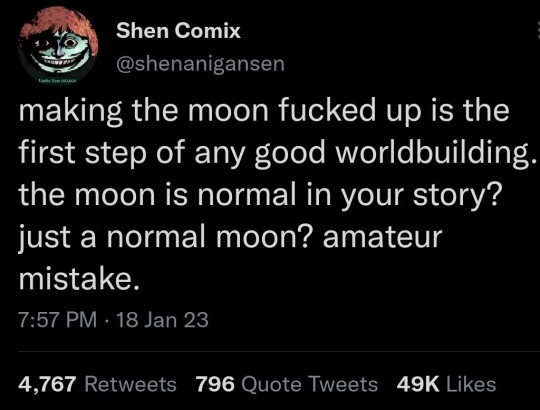
56K notes
·
View notes
Text
WORLD BUILDING CHECKLIST
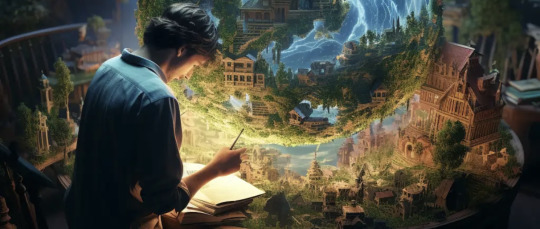
If you are writing a book/story that takes place in another world, I have provided for you the complete world building checklist to ensure that you know your world inside out.
Economy
A. Currency
B. Poverty rate/line
Government
A. Crime & Legal System
B. Foreign Relations
C. Politics
D. War
The Land
A. Physical & Historical Features
B. Climate
C. Geography
D. Natural Resources
E. Population
Society & Culture
A. Arts, Entertainment, & Recreation
B. Architecture
C. Calendar
D. Daily Life.
E. Diet
F. Ethics & Values
G. fashion & Dress
H. History
I. Dining Customs
J. Education
K. Language
L. Gestures
M. Manners
N. Meeting & Greeting
O. Religion & Philosophy
P. Social organization
Magic
A. Magicians
B. Magic and science
C. Magic & Technology
D. Rules of Magic
Technology
C. Technology
D. Medicine
D. Transportation & Communication
you're welcome <3
Fell free to reblog and fill it out if you want. I am curious to see the worlds in my fellow writers heads.
Follow me @leisureflame for more posts like this!
4K notes
·
View notes
Text
How Do I Make My Fictional Gypsies Not Racist?
(Or, "You can't, sorry, but…")
You want to include some Gypsies in your fantasy setting. Or, you need someone for your main characters to meet, who is an outsider in the eyes of the locals, but who already lives here. Or you need a culture in conflict with your settled people, or who have just arrived out of nowhere. Or, you just like the idea of campfires in the forest and voices raised in song. And you’re about to step straight into a muckpile of cliches and, accidentally, write something racist.
(In this, I am mostly using Gypsy as an endonym of Romany people, who are a subset of the Romani people, alongside Roma, Sinti, Gitano, Romanisael, Kale, etc, but also in the theory of "Gypsying" as proposed by Lex and Percy H, where Romani people are treated with a particular mix of orientalism, criminalisation, racialisation, and othering, that creates "The Gypsy" out of both nomadic peoples as a whole and people with Romani heritage and racialised physical features, languages, and cultural markers)
Enough of my friends play TTRPGs or write fantasy stories that this question comes up a lot - They mention Dungeons and Dragons’ Curse Of Strahd, World Of Darkness’s Gypsies, World Of Darkness’s Ravnos, World of Darkness’s Silent Striders… And they roll their eyes and say “These are all terrible! But how can I do it, you know, without it being racist?���
And their eyes are big and sad and ever so hopeful that I will tell them the secret of how to take the Roma of the real world and place them in a fictional one, whilst both appealing to gorjer stereotypes of Gypsies and not adding to the weight of stereotyping that already crushes us. So, disappointingly, there is no secret.
Gypsies, like every other real-world culture, exist as we do today because of interactions with cultures and geography around us: The living waggon, probably the archetypal thing which gorjer writers want to include in their portrayals of nomads, is a relatively modern invention - Most likely French, and adopted from French Showmen by Romanies, who brought it to Britain. So already, that’s a tradition that only spans a small amount of the time that Gypsies have existed, and only a small number of the full breadth of Romani ways of living. But the reasons that the waggon is what it is are based on the real world - The wheels are tall and iron-rimmed, because although you expect to travel on cobbled, tarmac, or packed-earth roads and for comparatively short distances, it wasn’t rare to have to ford a river in Britain in the late nineteenth century, on country roads. They were drawn by a single horse, and the shape of that horse was determined by a mixture of local breeds - Welsh cobs, fell ponies, various draft breeds - as well as by the aesthetic tastes of the breeders. The stove inside is on the left, so that as you move down a British road, the chimney sticks up into the part where there will be the least overhanging branches, to reduce the chance of hitting it.
So taking a fictional setting that looks like (for example) thirteenth century China (with dragons), and placing a nineteenth century Romanichal family in it will inevitably result in some racist assumptions being made, as the answer to “Why does this culture do this?” becomes “They just do it because I want them to” rather than having a consistent internal logic.
Some stereotypes will always follow nomads - They appear in different forms in different cultures, but they always arise from the settled people's same fears: That the nomads don't share their values, and are fundamentally strangers. Common ones are that we have a secret language to fool outsiders with, that we steal children and disguise them as our own, that our sexual morals are shocking (This one has flipped in the last half century - From the Gypsy Lore Society's talk of the lascivious Romni seductress who will lie with a strange man for a night after a 'gypsy wedding', to today's frenzied talk of 'grabbing' and sexually-conservative early marriages to ensure virginity), that we are supernatural in some way, and that we are more like animals than humans. These are tropes where if you want to address them, you will have to address them as libels - there is no way to casually write a baby-stealing, magical succubus nomad without it backfiring onto real life Roma. (The kind of person who has the skills to write these tropes well, is not the kind of person who is reading this guide.)
It’s too easy to say a list of prescriptive “Do nots”, which might stop you from making the most common pitfalls, but which can end up with your nomads being slightly flat as you dance around the topics that you’re trying to avoid, rather than being a rich culture that feels real in your world.
So, here are some questions to ask, to create your nomadic people, so that they will have a distinctive culture of their own that may (or may not) look anything like real-world Romani people: These aren't the only questions, but they're good starting points to think about before you make anything concrete, and they will hopefully inspire you to ask MORE questions.
First - Why are they nomadic? Nobody moves just to feel the wind in their hair and see a new horizon every morning, no matter what the inspirational poster says. Are they transhumant herders who pay a small rent to graze their flock on the local lord’s land? Are they following migratory herds across common land, being moved on by the cycle of the seasons and the movement of their animals? Are they seasonal workers who follow man-made cycles of labour: Harvests, fairs, religious festivals? Are they refugees fleeing a recent conflict, who will pass through this area and never return? Are they on a regular pilgrimage? Do they travel within the same area predictably, or is their movement governed by something that is hard to predict? How do they see their own movements - Do they think of themselves as being pushed along by some external force, or as choosing to travel? Will they work for and with outsiders, either as employees or as partners, or do they aim to be fully self-sufficient? What other jobs do they do - Their whole society won’t all be involved in one industry, what do their children, elderly, disabled people do with their time, and is it “work”?
If they are totally isolationist - How do they produce the things which need a complex supply chain or large facilities to make? How do they view artefacts from outsiders which come into their possession - Things which have been made with technology that they can’t produce for themselves? (This doesn’t need to be anything about quality of goods, only about complexity - A violin can be made by one artisan working with hand tools, wood, gut and shellac, but an accordion needs presses to make reeds, metal lathes to make screws, complex organic chemistry to make celluloid lacquer, vulcanised rubber, and a thousand other components)
How do they feel about outsiders? How do they buy and sell to outsiders? If it’s seen as taboo, do they do it anyway? Do they speak the same language as the nearby settled people (With what kind of fluency, or bilingualism, or dialect)? Do they intermarry, and how is that viewed when it happens? What stories does this culture tell about why they are a separate people to the nearby settled people? Are those stories true? Do they have a notional “homeland” and do they intend to go there? If so, is it a real place?
What gorjers think of as classic "Gipsy music" is a product of our real-world situation. Guitar from Spain, accordions from the Soviet Union (Which needed modern machining and factories to produce and make accessible to people who weren't rich- and which were in turn encouraged by Soviet authorities preferring the standardised and modern accordion to the folk traditions of the indigenous peoples within the bloc), brass from Western classical traditions, via Balkan folk music, influences from klezmer and jazz and bhangra and polka and our own music traditions (And we influence them too). What are your people's musical influences? Do they make their own instruments or buy them from settled people? How many musical traditions do they have, and what are they all for (Weddings, funerals, storytelling, campfire songs, entertainment...)? Do they have professional musicians, and if so, how do those musicians earn money? Are instrument makers professionals, or do they use improvised and easy-to-make instruments like willow whistles, spoons, washtubs, etc? (Of course the answer can be "A bit of both")
If you're thinking about jobs - How do they work? Are they employed by settled people (How do they feel about them?) Are they self employed but providing services/goods to the settled people? Are they mostly avoidant of settled people other than to buy things that they can't produce themselves? Are they totally isolationist? Is their work mostly subsistence, or do they create a surplus to sell to outsiders? How do they interact with other workers nearby? Who works, and how- Are there 'family businesses', apprentices, children with part time work? Is it considered 'a job' or just part of their way of life? How do they educate their children, and is that considered 'work'? How old are children when they are considered adult, and what markers confer adulthood? What is considered a rite of passage?
When they travel, how do they do it? Do they share ownership of beasts of burden, or each individually have "their horse"? Do families stick together or try to spread out? How does a child begin to live apart from their family, or start their own family? Are their dwellings something that they take with them, or do they find places to stay or build temporary shelter with disposable material? Who shares a dwelling and why? What do they do for privacy, and what do they think privacy is for?
If you're thinking about food - Do they hunt? Herd? Forage? Buy or trade from settled people? Do they travel between places where they've sown crops or managed wildstock in previous years, so that when they arrive there is food already seeded in the landscape? How do they feel about buying food from settled people, and is that common? If it's frowned upon - How much do people do it anyway? How do they preserve food for winter? How much food do they carry with them, compared to how much they plan to buy or forage at their destinations? How is food shared- Communal stores, personal ownership?
Why are they a "separate people" to the settled people? What is their creation myth? Why do they believe that they are nomadic and the other people are settled, and is it correct? Do they look different? Are there legal restrictions on them settling? Are there legal restrictions on them intermixing? Are there cultural reasons why they are a separate people? Where did those reasons come from? How long have they been travelling? How long do they think they've been travelling? Where did they come from? Do they travel mostly within one area and return to the same sites predictably, or are they going to move on again soon and never come back?
And then within that - What about the members of their society who are "unusual" in some way: How does their society treat disabled people? (are they considered disabled, do they have that distinction and how is it applied?) How does their society treat LGBT+ people? What happens to someone who doesn't get married and has no children? What happens to someone who 'leaves'? What happens to young widows and widowers? What happens if someone just 'can't fit in'? What happens to someone who is adopted or married in? What happens to people who are mixed race, and in a fantasy setting to people who are mixed species? What is taboo to them and what will they find shocking if they leave? What is society's attitude to 'difference' of various kinds?
Basically, if you build your nomads from the ground-up, rather than starting from the idea of "I want Gypsies/Buryats/Berbers/Minceiri but with the numbers filed off and not offensive" you can end up with a rich, unique nomadic culture who make sense in your world and don't end up making a rod for the back of real-world cultures.
6K notes
·
View notes
Text

3K notes
·
View notes
Text
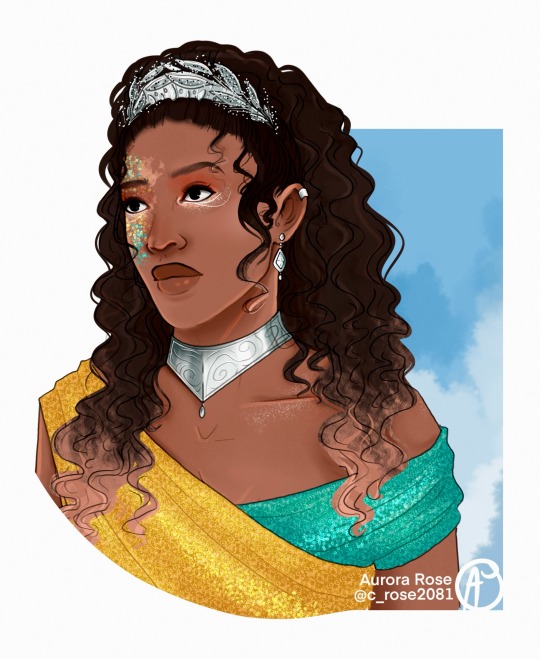
Princess Ariadne Nevaeh Rose-Corleone
Though it’s not her favorite thing, Ariana is still a (spare) Princess of her country. It’s a very tiny country, but still a country nonetheless. And when Coventry is included in any formal affair alongside Auroria, they show, because of course they do. Ariana had to get her taste for dramatics somewhere.
The colors of Coventry are yellow and teal, their precious metal is silver, and their gemstone is the white diamond. Their symbol is that of the Mockingbird (a bird that is well known for mimicking the songs of others) and the Pegasus (the symbol of King Jedrick’s home Kingdom of Aalidonia, of which he is second to the throne).
The royal family of Coventry includes: Queen Rhea, King Jedrick, Prince Adonis, and Princess Ariadne.
Their main export is an exquisite array of wine (some of the best in Auradon), as well as other agriculture like grapes, hops and barley. Though small, Coventry is quite lush and profitable as a territory, and is very popular with tourists and honeymooners for its beautiful vineyards, rivers, and wine tasting.
Ariana has a love hate relationship with her home. She loves it dearly, having spent much of her childhood exploring the rolling fields and running amongst the vines while the staff picked grapes. But there’s also a lot of hurt embedded in her, as her parents always wanted a son, putting their new baby boy above everything in their hearts, including her. She has no scorn towards Coventry itself, nor any towards her people. But she has a lot of spite and a lot of hatred for her mother, father, and brother, making returning for long periods of time a painful and difficult experience.
#disney descendants#princess ariana rose#character portrait#digital art#concept art#disney#character art#fanart#illustration#character design#original character#art#world building#lore building
34 notes
·
View notes
Text

Daily drawing 1531: Whatever magics created the landmark sword, keep it to this day. Only wear from a long forgotten battle marks the blade, Time bearing no power over the strange metal. But to whatever end the sword was forged, Time has claimed its rightful position of being the sole keeper of that memory.
#digital art#procreate#artist#illustration#artists on tumblr#landscape art#landscape#original art#fantasy#fantasy landscape#sword#world building
4K notes
·
View notes
Text
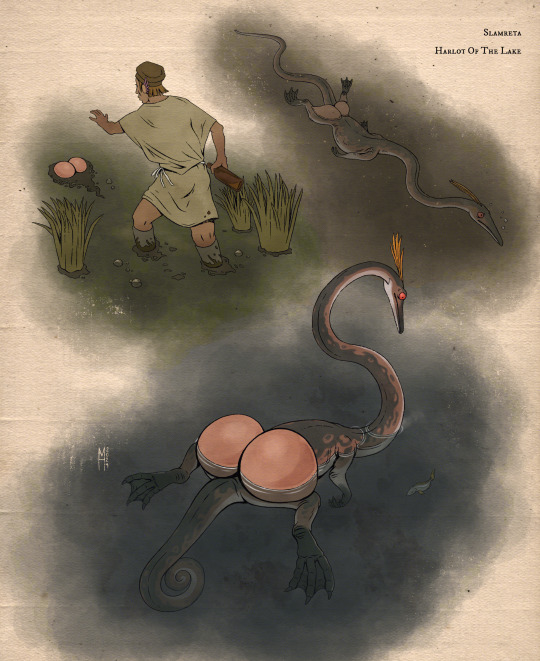
You're drunkenly stumbling home one night and from the duckboards through the booze haze you see the most scrumptious ass teasingly glide away deeper into the dark swamp. You follow, legs getting heavier and orientation more difficult by each step.
How many times that scenario has played out in Ditovo is not easy to calculate but it's likely not zero. The more sober locals will tell you that the slamreta, also known as "harlot of the lake", is not a malicious creature, it wants nothing to do with you in fact. This animal uses inflatable sacs on its hind legs to float on the water's surface perfectly still as it looks for fish or other small things to eat. It hunts using its sharp vision and plunges its long neck to reach prey. It's long tail is curled up to act as a stabilizing anchor. At sign of danger the slamreta can deflate the hind leg sacs to dive and swim away. It spends most of its time in water and will build a nest in-between reeds or other shore vegetation.
#pls don't bother him he just wants to fish#original species#worldbuilding#world building#creature design#fantasy species#fantasy animal#fauna
2K notes
·
View notes
Text
World Building Checklist
Have you ever started writing a story and realized your world has a bunch of unexplained shit and you have to fill in the gaps as you go? Me too, buddy. Me too. Here’s a checklist so that you can fully flesh out your world to the max. (I’m dying)
How does Time work? (Minutes, hours, days, the daylight cycle, years, ect.)
Species (if Fantasy. Will probably make another post on this.)
Countries, Nations, Tribes, ect. (nationalities/ races. Will probably make another post on this.)
The geography of the world (draw a map. Doesnt have to be good. Just for a general idea.)
Rivalries between races (includes prejudice, racism, ect.)
Religions
Technology
The Magic system. (Will probably make a whole other post on this.)
animals, plants, ect.
The sky: Sun, Moon(s), Stars, Constellation, Are there rings? (If the planet has rings)
Educations system
Government system
Politics
Methods of transport (Vehicles)
Medicine
Can’t really think of anything else. If you have more to add then reblog and add to the list! :) bye bee
#writing advice#how to write#creative writing#writers on tumblr#writing#writeblr#world#world building#fantasy worldbuilding#fantasy writing#fantasy tips#Fantasy world building tips#Writing tips#HEAVENLYRAIN’S WRITING TIPS
2K notes
·
View notes
Text
World building.
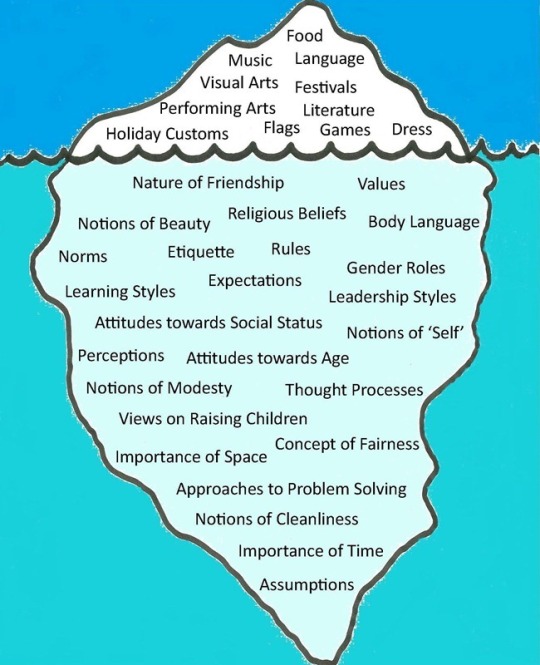
#writblr#writers on tumblr#writing community#writers of tumblr#writers on ao3#world building#writing#writer#writers#writing process#writing stuff#writing meme#writing memes
2K notes
·
View notes